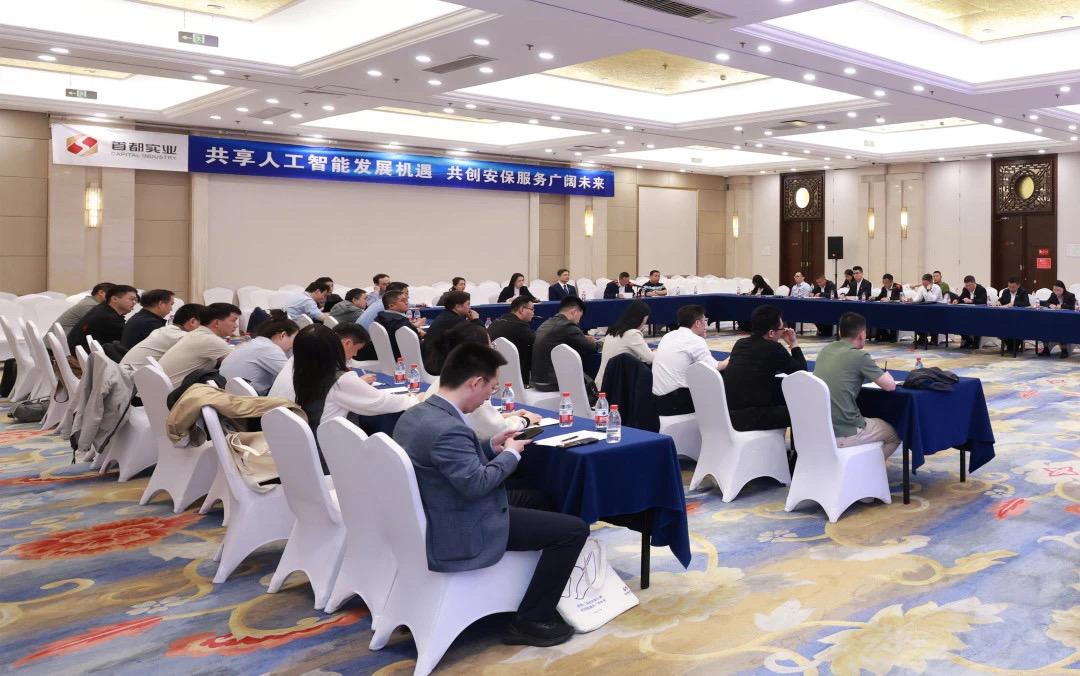AI and Robotics Reshaping Modern Security

With the rapid development of AI and robotics, the security industry is undergoing a transformative revolution.
Under the theme of "Sharing AI Development Opportunities, Building a Broad Future for Security Services," a recent symposium in Beijing brought together representatives from related government departments, research institutions, technology firms, investment companies, and security enterprises.
"As an important player in China’s security sector, we are actively embracing AI transformation and prioritizing innovation, talent cultivation, and application-driven models to build an AI industrial cluster for security services," Chen Jiang, secretary of the Party Committee and chairman of Capital Industrial Investment Co., Ltd., stated.
He called for deepening collaboration with research institutions and tech enterprises to foster a data-driven, cross-industry ecosystem marked by human-machine collaboration and shared innovation.
Through integrating multi-modal sensors and AI algorithms, security robots can handle basic security tasks. They are being applied in a wide range of scenarios, such as conducting hazardous material detection and emergency responses, said Zhu Zexi, a researcher from the Equipment Industry Development Center of the Ministry of Industry and Information Technology. In the future, such robots will have great potential in comprehensive autonomous patrol and dynamic task planning, intelligent emergency response and collaborative rescue operations.
Driven by increasing demand, technological advancements and smart city initiatives, China's security robotics market is expected to develop at a compound annual growth rate of 10.05 percent from 2025 to 2032, according to Market Research Intellect.
Chen Xi, CEO of Mortise Labs, proposed establishing robot pilot testing bases nationwide, so as to facilitate the integration of robots into daily life and urban management. Leveraging its online platform, Mortise Labs also aims to build a comprehensive robot digital community that integrates technology sharing, enterprise services, and commercial applications.
Yang Lei, executive vice president of Tsingzhan Artificial Intelligence Research Institute, thinks that video analytics in the security industry represents a blue ocean market. By leveraging cross-modal cognitive and reasoning capabilities, video analytics has evolved from merely capturing visual details to comprehending event semantics, achieving unprecedented automation that replaces labor-intensive monitoring with intelligent contextual understanding.
The integration of robots and AI not only enhances efficiency but also pioneers a new paradigm for the security industry. As traditional human-reliant models are being phased out globally, China's unique combination of cutting-edge tech ecosystems and smart city initiatives has positioned it to deploy intelligent security solutions at an unprecedented scale.






